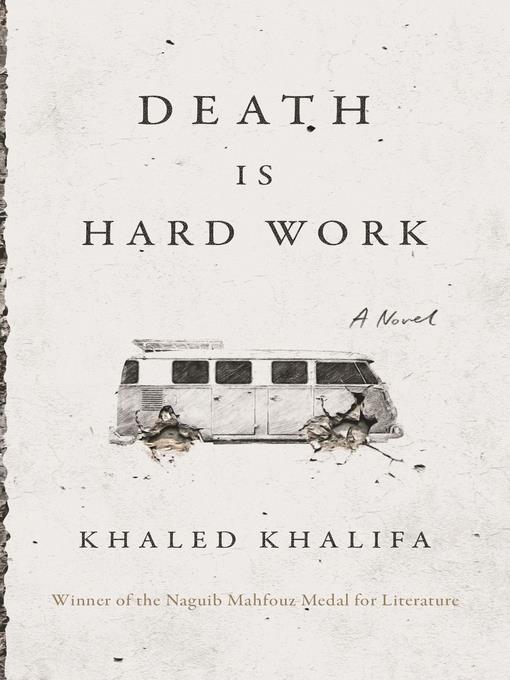
Death Is Hard Work
A Novel
- اطلاعات
- نقد و بررسی
- دیدگاه کاربران
نقد و بررسی

December 1, 2018
Insistent, memorable portrait of the small indignities and large horrors of the civil war in Syria.A native of the Aleppo district, Khalifa--well-known in the Arabic-reading world but new to most American readers and a winner of the Naguib Mahfouz Medal for Literature--here writes of a family both joined and torn apart by death. The paterfamilias knows that his passing is imminent: The first sentence reads, "Two hours before he died, Abdel Latif al-Salim looked his son Bolbol straight in the eye with as much of his remaining strength as he could muster to extract a solemn vow and repeated his request to be buried in the cemetery of Anabiya." In a time of peace, that wouldn't be hard, for Anabiya is a couple of hours away from Damascus, where the family is living. But this is a time of war, and now Bolbol must enlist the aid of his brother, Hussein, and sister, Fatima, to take their father's body across barriers and front lines. As they travel, memories and dialogue combine to begin to suggest how the siblings drifted apart and how Syria's dissolution took some of their dreams with them, some a little unseemly: Hussein, for instance, harbored hopes of becoming a crime lord instead of driving hookers around and running errands for a drug dealer as a toady on the lowest rung of the local mob. They learn about their father, too, as they travel across the ravaged landscape, and what they learn isn't the stuff of bonding: "all three siblings were like strangers to this corpse that...still retained the advantage of being able to lie there without caring." Ah, but divisions and disappointments reign even in death, and at the close of the story, even Anabiya is short of room to welcome a native son into its earth, to say nothing of people to mark his passing.Suggestive at times of a modern Decameron and a skillfully constructed epic that packs a tremendous amount of hard-won knowledge into its pages.
COPYRIGHT(2018) Kirkus Reviews, ALL RIGHTS RESERVED.

Starred review from December 1, 2018
A more challenging scenario than the one facing siblings Bolbol, Fatima, and Hussein in this powerhouse novel would be hard to imagine. The siblings' father has died, and his final wish was to be buried in his ancestral village in Syria's Aleppo region. In a country engaged in active civil war, though, the two-hour drive from their home in Damascus could cost the siblings their lives. Refusing to look away from its characters' challenges, the novel is clear-eyed in its presentation of living in a war zone. Many bodies are uncollected on roadsides and eaten by dogs. Is it potentially worth the siblings' own lives to prevent this fate for their father? At checkpoints, guards demand to see papers for the corpse?to some he is a traitor even while dead?and threats of imprisonment, bombing, and torture are real. Each with singular histories and needs, the siblings are living out the most existential of questions: What actually matters in a dangerous world? Winner of the Naguib Mahfouz Medal for Literature, Syrian author Khalifa (In Praise of Hatred, 2014) reaches readers with a style that is straightforward, true, and profound.(Reprinted with permission of Booklist, copyright 2018, American Library Association.)

September 15, 2018
An elderly man who passed away peacefully left his younger son with one request: to bury him in the family plot in their ancestral village. Though the man was hardly an ideal father, the son dutifully rounds up his tetchy brother and sister and persuades them to join in the two-hour drive to the village. The only complication: this is Syria, and as they leave Damascus for the countryside, the siblings are imprisoned, interrogated, and bombarded by the various competing factions that stand between them and the cemetery. Winner of the Naguib Mahfouz Medal and finalist for the International Prize for Arabic Fiction, Khalifa himself refuses to leave Damascus and remains a key chronicler of the city's fate.
Copyright 2018 Library Journal, LLC Used with permission.




دیدگاه کاربران